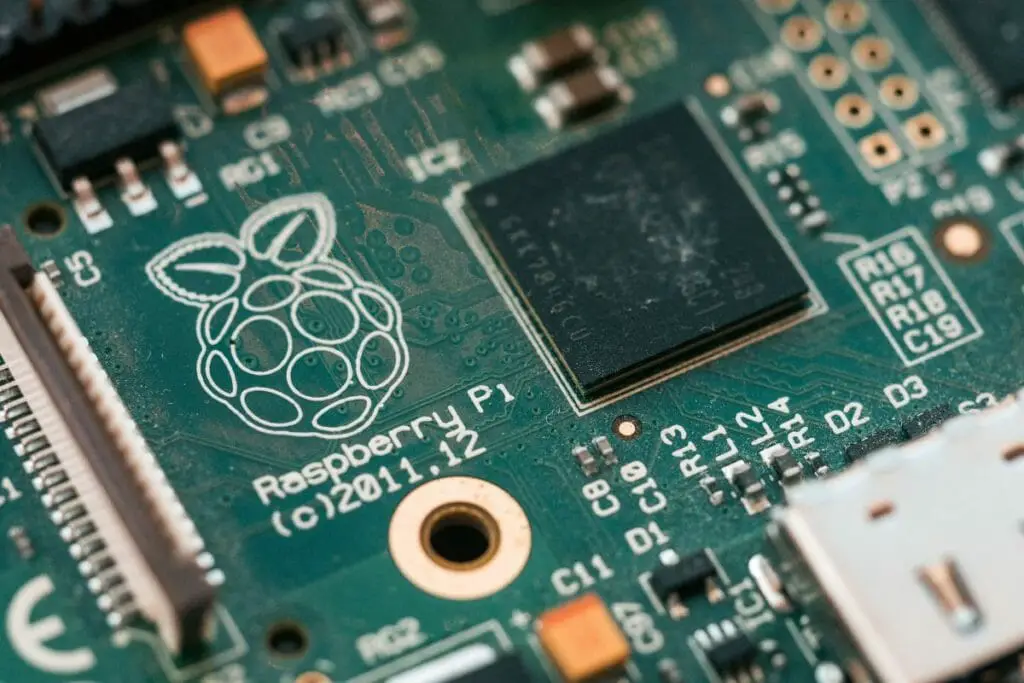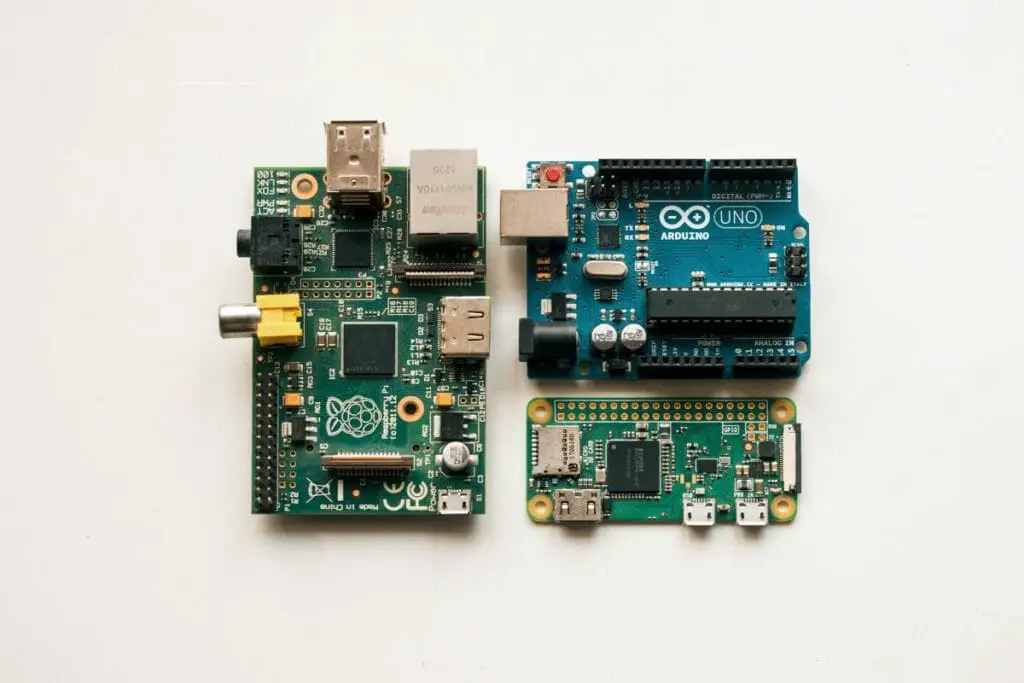
In the world of single-board computers (SBCs), two names have emerged as key players in the realm of affordable and versatile computing solutions: Raspberry Pi and Orange Pi.
As these tiny but powerful devices continue to reshape the landscape of DIY electronics, hobbyists, educators, and tech enthusiasts alike are eager to uncover the unique features and capabilities that set these SBCs apart.
In this article, we delve into the fascinating world of Raspberry Pi and Orange Pi, exploring their respective strengths and weaknesses to help you make an informed decision for your next project.
So, buckle up as we embark on an electrifying journey to discover the battle between these miniature computing titans, uncovering the best option to fuel your creativity and innovation.
What Is A Raspberry Pi?
A Raspberry Pi is a small, versatile single-board computer (SBC) developed by the Raspberry Pi Foundation, a UK-based charity organization. Its primary aim is to promote computer science education and inspire a new generation of programmers, engineers, and digital creators.
The Raspberry Pi features a compact design with essential components, such as a CPU, GPU, RAM, USB ports, HDMI, and GPIO pins, all integrated into a single circuit board. It runs on a Linux-based operating system, typically Raspbian, but supports various other OS options as well.
Since its launch in 2012, the Raspberry Pi has evolved through several iterations, each offering improved performance, connectivity, and functionality. The device has gained immense popularity among hobbyists, educators, and developers for its affordability, low power consumption, and ease of use. Its applications span across diverse fields, including home automation, robotics, media centers, gaming consoles, IoT projects, and much more.
What Is An Orange Pi?
An Orange Pi is a series of compact, cost-effective single-board computers (SBCs) developed by Shenzhen Xunlong Software, a Chinese company. Like the Raspberry Pi, Orange Pi boards are designed to offer an accessible platform for computer science education, DIY electronics, and various other applications in the world of computing and electronics.
Orange Pi boards come with essential components, such as a CPU, GPU, RAM, USB ports, HDMI, and GPIO pins, all integrated into a single circuit board. They run on Linux-based operating systems, as well as Android.
While not as widely recognized as the Raspberry Pi, the Orange Pi has gained a reputation for providing a range of budget-friendly alternatives with varying specifications and features, catering to different project requirements. The Orange Pi family includes several models, each with unique capabilities, such as faster processors, additional connectivity options, and increased storage capacity. These devices are suitable for a wide array of applications, including IoT projects, media centers, home automation, robotics, and more.
Raspberry Pi Vs Orange Pi: What’s The Difference?
Now that you know a little bit more about both the Raspberry Pi and an Orange Pi, here are some of the general differences that you should look out for:
Note: These are general comparisons and are all dependent on the exact models being compared.
- Raspberry Pis have a large user community. As a result, there is plenty of community support that can help people to use a Raspberry Pi. This includes guides and videos that can be found online. The reason for this is that the Raspberry Pi precedes the Orange Pi, meaning that it has been around for longer.
- Though prices can vary, an Orange Pi tends to be cheaper than a Raspberry Pi. So if you are looking for a budget-friendly computer system, an Orange Pi may be the superior choice.
- Raspberry Pis tend to be a little lighter than Orange Pis. Of course, the exact weight will depend on the model that you’re using. Generally, a Raspberry Pi tends to weigh around 45g. Meanwhile, an Orange Pi usually weighs around 68g.
- They also tend to have different maximum operating temperatures. Orange Pis tend to have a maximum temperature of roughly 65°C. On the other hand, a Raspberry Pi tends to have a maximum operating temperature that is between 70°C and 85°C.
- In terms of operating quality, an Orange Pi tends to be the superior option. Arguably, it is more advanced than a Raspberry Pi. When looking at a Model Vs Model comparison – an Orange Pi tends to have a larger RAM (random access memory), meaning that it can have better responsiveness. Again, this will be reliant on the model.
- Raspberry Pi has excellent software support. It has great technical support. In contrast, the Orange Pi technical support is minimal.
Raspberry Pi Vs Orange Pi Comparison

To further highlight the differences between a Raspberry Pi and an Orange Pi, we’ve created a comparison table. Just bear in mind that this comparison will differ depending on the model of both of these devices.
| Raspberry Pi | Orange Pi | |
| Price | The cost of a Raspberry Pi can vary significantly. However, they are usually a little cheaper than the Orange Pi. | The Orange Pi is an affordable system, though they tend to cost a little more than a Raspberry Pi. |
| RAM (random access memory) | Raspberry Pi 2: 1GB, Raspberry Pi 3: 1GB, Raspberry Pi 4: 1GB, 2GB, 4GB, or 8GB | Video Compatibility |
| GPU (graphics processing unit) | Broadcom Videocore-IV GPU | Mali400MP2 GPU |
| OS (operating system) | Linux | Linux or Android |
| CPU (Central Processing Unit) | 1.2Ghz 64bit Quad-Core Processor | H5 Quad Core Cortex-A53 Processor |
| Ethernet and Wifi connectivity | Yes, it can connect to both Wifi and ethernet connectivity. | Yes, it can connect to both Wifi and ethernet connectivity. |
| Video compatibility | There is some video support, but these videos will not be in 4K. | No video support. |
Raspberry Pi Vs Orange Pi: Which Is Better?
Choosing between a Raspberry Pi and an Orange Pi is difficult, as there are advantages and disadvantages to using both of these devices.
For instance, one of the advantages that a Raspberry Pi has over an Orange Pi is the level of support. It not only has technical support but there is also excellent community support available. This makes it much easier for beginners, as they can easily find any help that they need.
Here are some of the factors that you should consider when deciding between a Raspberry Pi and an Orange Pi:
- Price: though both devices are fairly affordable, you can end up spending a lot of money on more recent models. Consequently, you will need to look at the prices if you want to avoid spending tons of money on your single-board computer.
- RAM: the RAM of these two devices will vary between models. Therefore, it’s important to not only consider which of these devices you want but also which model you need. RAM will affect the operating speed of your mini-computer.
- Weight: the weight of your device will matter. These small computers are designed to be lightweight and portable. If your computer is heavy, it will be less portable than other devices.
- Operating quality: the operating capacity of your computer is the speed at which it works and its efficiency. If you regularly use mini computers, it’s important to find a device with high performance.
- Support: if you are a beginner to the world of computers, you will want to use a device with lots of technical support. This way, you can receive support for any issues that you’re experiencing. If this is an important factor for you, then a Raspberry Pi is the better option.
Frequently Asked Questions:
Does Orange Pi Have Built-In Wifi?
Yes, Orange Pi has built-in Wifi, which makes wireless connectivity much easier. Some models even have dual-band WiFi.
Which Is Better: Raspberry Pi Or Banana Pi?
Again, this is completely a matter of opinion. With a more capable CPU, the Raspberry Pi is typically more powerful than a Banana Pi. Plus, there is further support available when using a Raspberry Pi.
Is A Raspberry Pi Worth It?
Yes, a Raspberry Pi is worth it if you are a computer enthusiast. They are quite cheap, making them a low-risk investment for your hobby pursuits, automation or robotics tasks meaning that you won’t have to spend a fortune on this hobby.

Final Thoughts
On the face of it, a Raspberry Pi and an Orange Pi will look extremely similar. Yet, if you are interested in using a small single-board computer, it’s important to be able to tell the difference between them.
Fortunately, this guide will not only help you to tell the differences between a Raspberry Pi and an Orange Pi but also to choose which of them is best for you!
